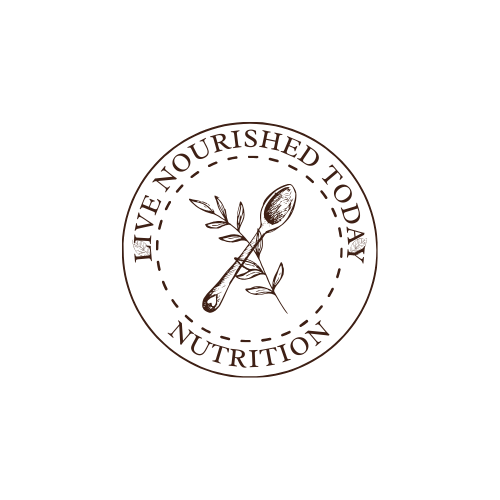Live Nourished Today, LLC

Depression and Physical Health
Depression is a major brain disorder that can have a huge impact on your physical health. It may cause your heart rate to slow or your immune system to shut down. It can also affect your sleep and appetite, making it hard to eat enough or feel well.
Your physical health and your mental health often work in concert, so if you have depression, it's important to make sure your doctor knows about any other diseases or illnesses you may have. This can help them find the best treatment for both.
You can improve your physical health by eating right, staying active and getting enough sleep.
Take steps to control stress, boost your self-esteem and increase your resilience. This will help you better handle life's challenges and prevent a relapse of your depression.
Regularly attend group or individual therapy with a psychologist or therapist. This type of counseling can be especially helpful for people with depression who are afraid of talking about their feelings in a one-on-one setting.
Practicing meditation, yoga or deep breathing can help you reduce stress and improve your overall mood. You can also try reflexology, which applies pressure to specific pressure points on the feet, hands and ears, to reduce tension and stress.
If you're taking medication for depression, ask your doctor about other treatments that are effective and don't have harmful side effects. Many people benefit from using a combination of both medications and therapies to treat their depression.
Avoid alcohol and other drugs if you're depressed. These substances can trigger more depression and make it harder to get better. They can also make it difficult for you to think clearly. Be sure to eat a balanced diet, avoiding foods that are high in sugar, fat or salt. You can also try a supplement to increase your serotonin levels, which are known to help your mental health.
Keep a diary of your thoughts and feelings. This will allow you to identify any changes that may be contributing to your depression. It will also help you understand why your depression is happening, which can be a big help when it comes to choosing a medication or other treatment. Getting plenty of sleep is very important for mental health. You should get at least 7-9 hours of sleep each night, and it's recommended to go to bed and wake up at the same times every day.
Staying active can be very helpful for people with depression, too. This can be done by doing something you enjoy, such as walking, jogging or swimming.
It can be hard to get started with a new activity, but if you're determined, it's a good idea to start small and build up to more. It's also helpful to have a support system in place, such as a friend or family member, to offer encouragement and advice.Boosting Your Energy and Weight Loss With Nutritious Foods
Adding a few extra nutrient-dense foods to your diet may help you feel more energetic. This includes a variety of fruits, vegetables, whole grains, and lean protein sources.
Fatty fish and other seafood, like tuna, halibut, salmon, herring, mackerel, sardines, and lake trout, are excellent sources of omega-3 fatty acids. These oils can help reduce stress, improve depression, and ease muscle pains.
Fruit and veggies are a rich source of antioxidants that fight inflammation, which can also contribute to chronic illnesses such as depression. They’re also high in fiber, which keeps you feeling full and prevents overeating.
Snacks are a great way to get in more fruits and veggies, which will boost your energy. Try to avoid refined sugar and artificial sweeteners, which are known to increase stress levels.
A snack with enough carbohydrates and protein will give you energy to last through the day. Veggies and fruit also provide important vitamins and minerals. Getting enough sleep and exercise is also vital to maintain healthy moods and weight. Studies have shown that those with anxiety, depression, or insomnia tend to have lower quality sleep than those who don’t. Having adequate rest can decrease feelings of anxiety, stress, and irritability, according to a study published in November 2014 in the journal Nutrition Research. Coping with negative emotions can be difficult, especially when you’re hungry. Eating a meal that tastes good, especially if it’s satisfying and healthy, can help you feel more secure and confident.
Don’t let food thoughts take over your brain and control your emotions. This will help you stay calm and make better choices when you’re not in a happy place. Eat intuitively and enjoy your meals and snacks. This will help you learn to recognize your hunger and fullness cues, which will lead to eating healthier food more often.
Say no to self-induced food thoughts that tell you you’re bad or good based on how many calories you consume. This is a key part of healing from diet culture. Stop chasing the food police (negative food thoughts) that you’ve internalized from diets. They’re a big part of why you’re struggling with weight loss or bingeing.
Eventually, these negative thoughts will go away and you’ll be free to explore other ways of dealing with emotions. It’s normal to experience some jitters and anxiety in the early stages of healing from diets and rigid food rules. Just remember to stay focused on the bigger picture and be patient with yourself as you learn new skills.



